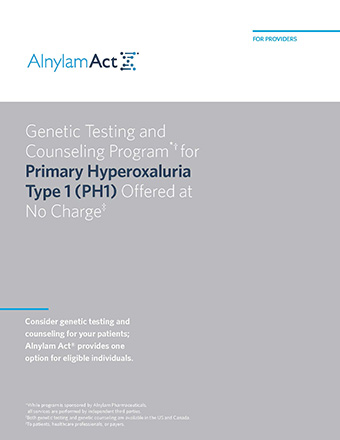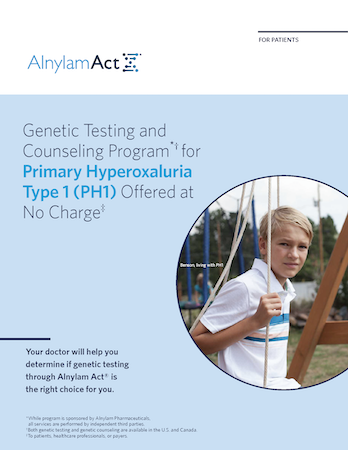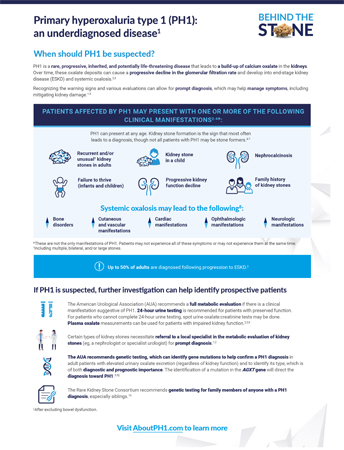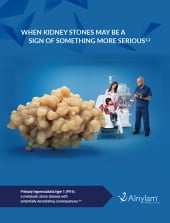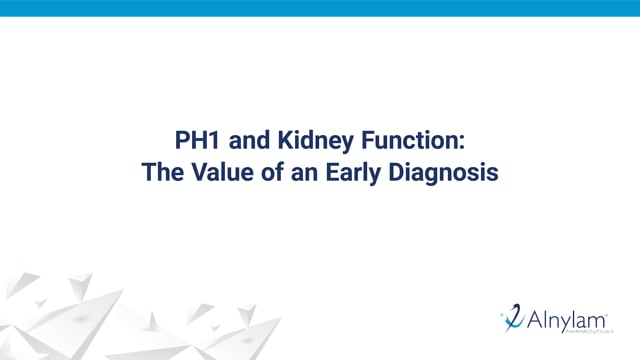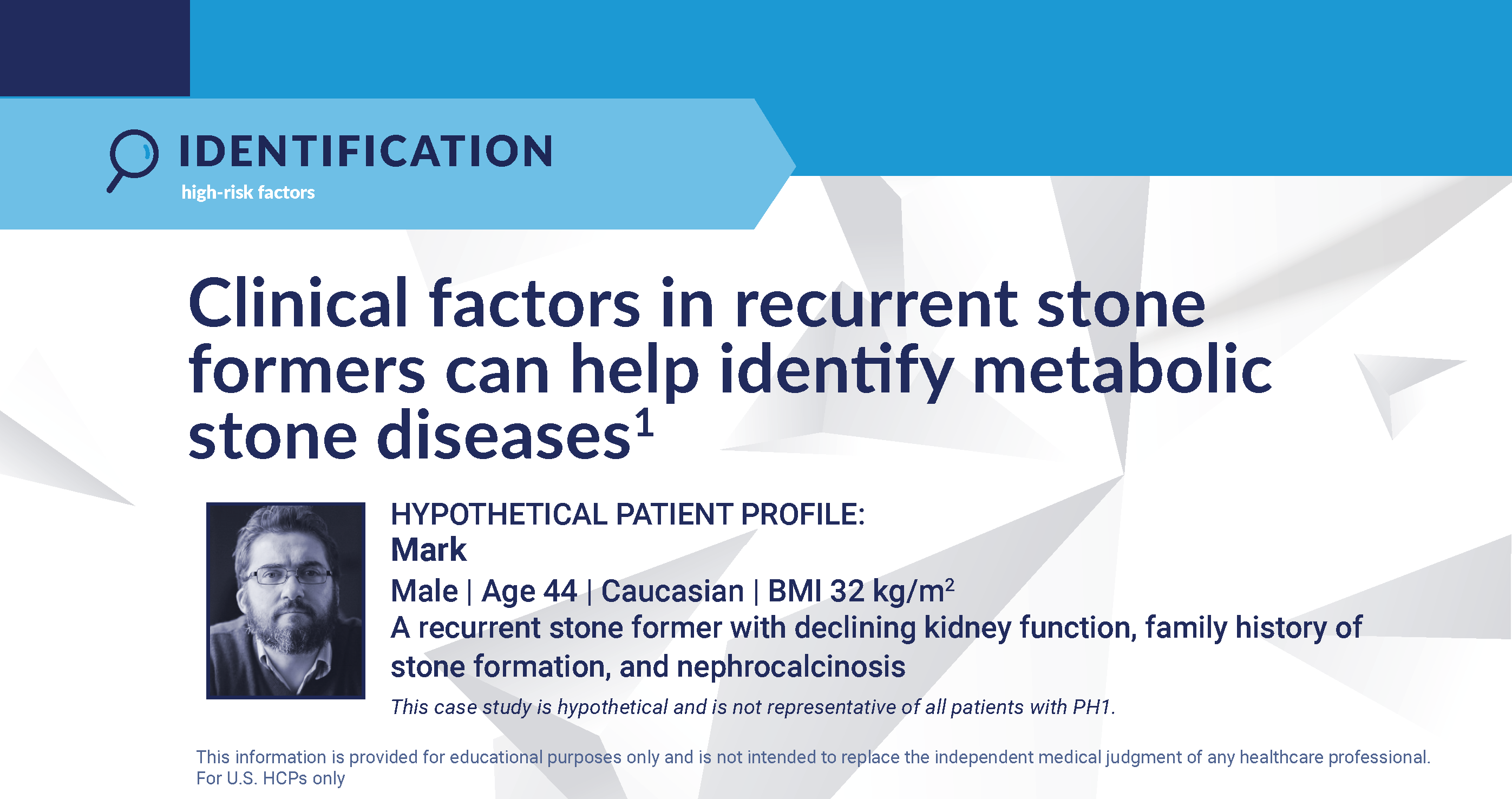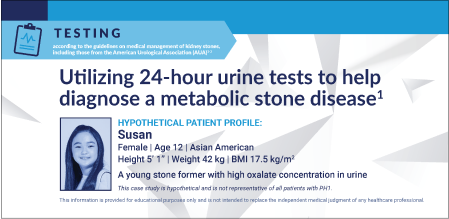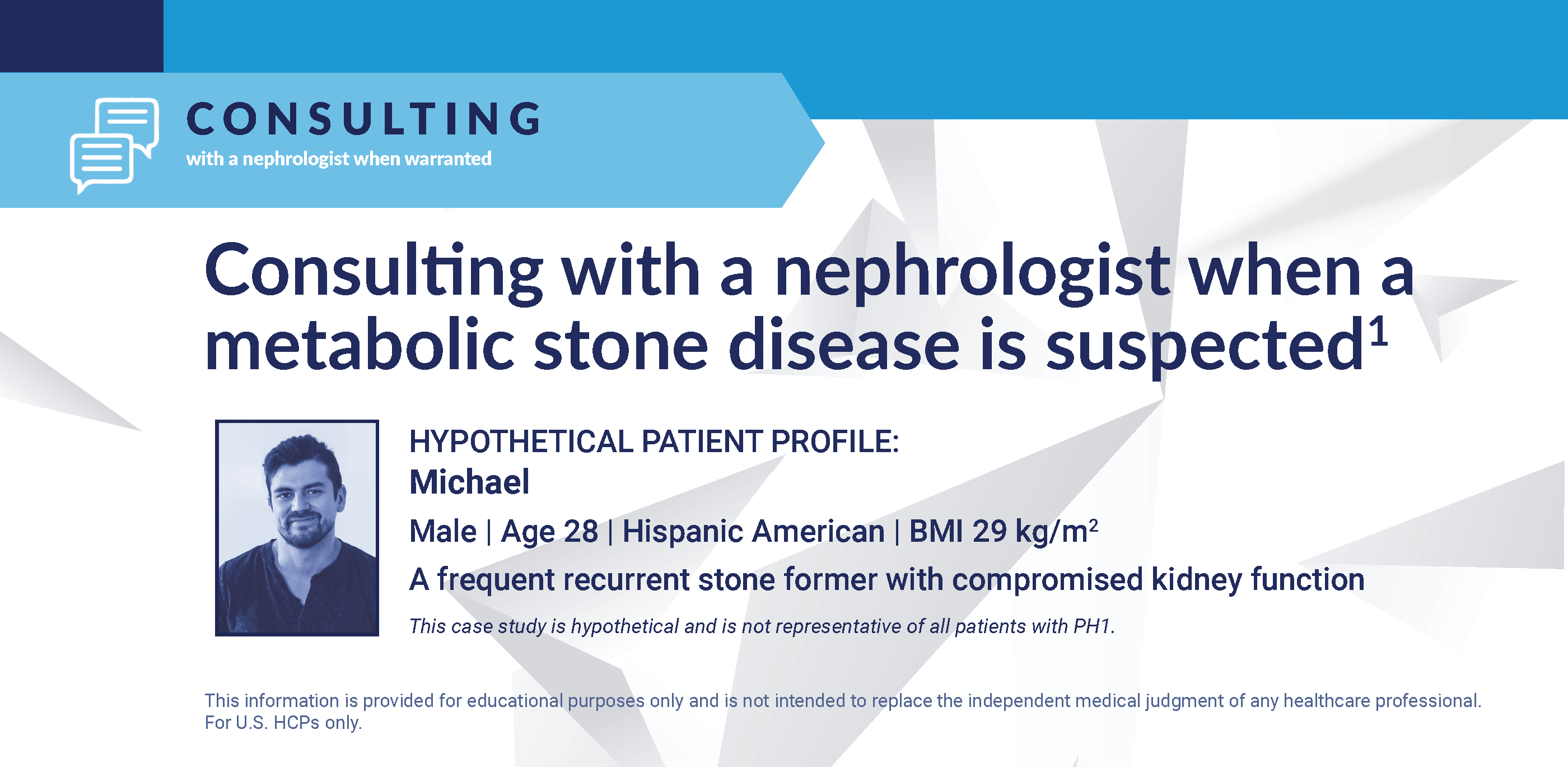

ADDITIONAL RESOURCES ON PH1
Find links to advocacy organizations, information on testing and research resources, and primary hyperoxaluria type 1 (PH1) educational materials below.
TESTING INFORMATION
One option for genetic testing for PH1
Alnylam Pharmaceuticals sponsors third-party genetic testing and counseling for individuals who may carry gene mutations known to be associated with PH1.
DISEASE INFORMATION
Downloads and Videos
Quick-reference and downloadable resources that detail critical information about PH1, diagnosis, and select management options.

When Kidney Stones May Be a Sign of Something More Serious
Learn about when a systemic condition may be behind kidney stone formation and how genetic testing can help confirm a diagnosis.1
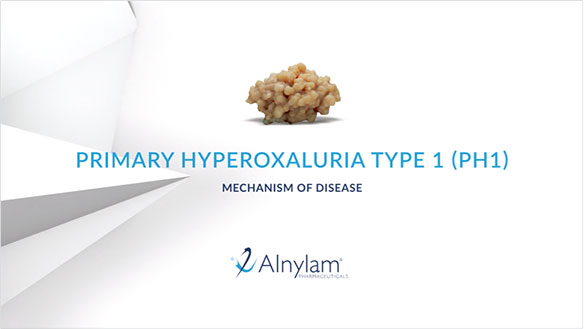
PH1: Mechanism of Disease
Learn how genetic mutation leads to PH1 and its complications.2,3
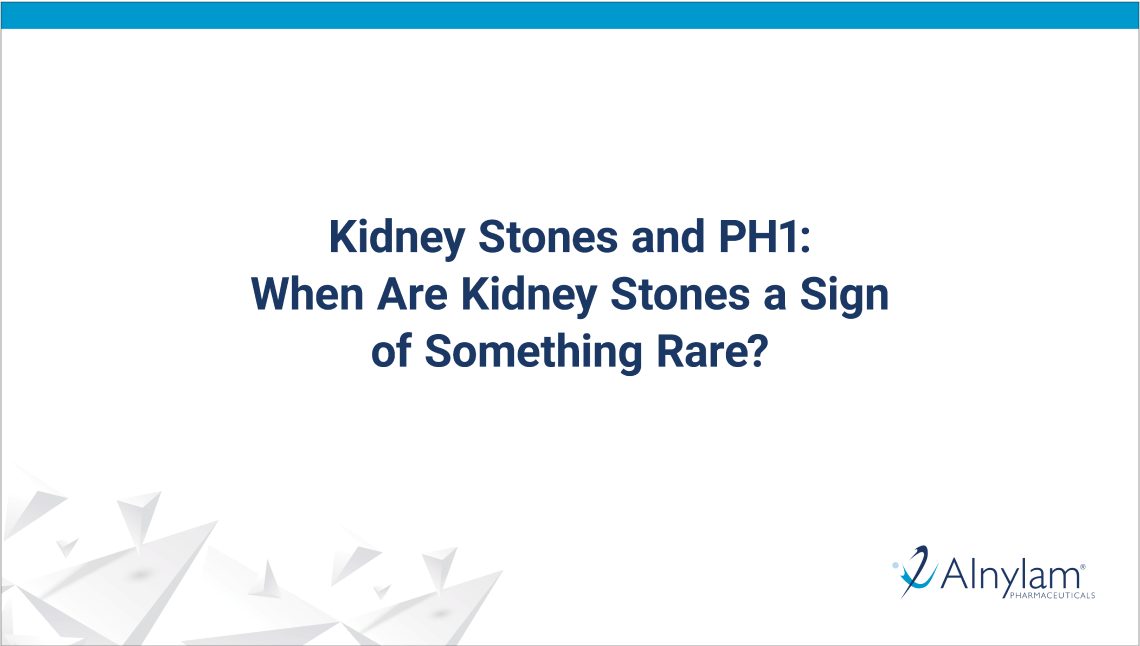
Kidney Stones and PH1: When Are Kidney Stones a Sign of Something Rare?
Pediatric urologist and clinical epidemiologist Dr Gregory Tasian highlights the key clinical signs of when kidney stones may be caused by a rare condition like PH1 in children and adults.1,4
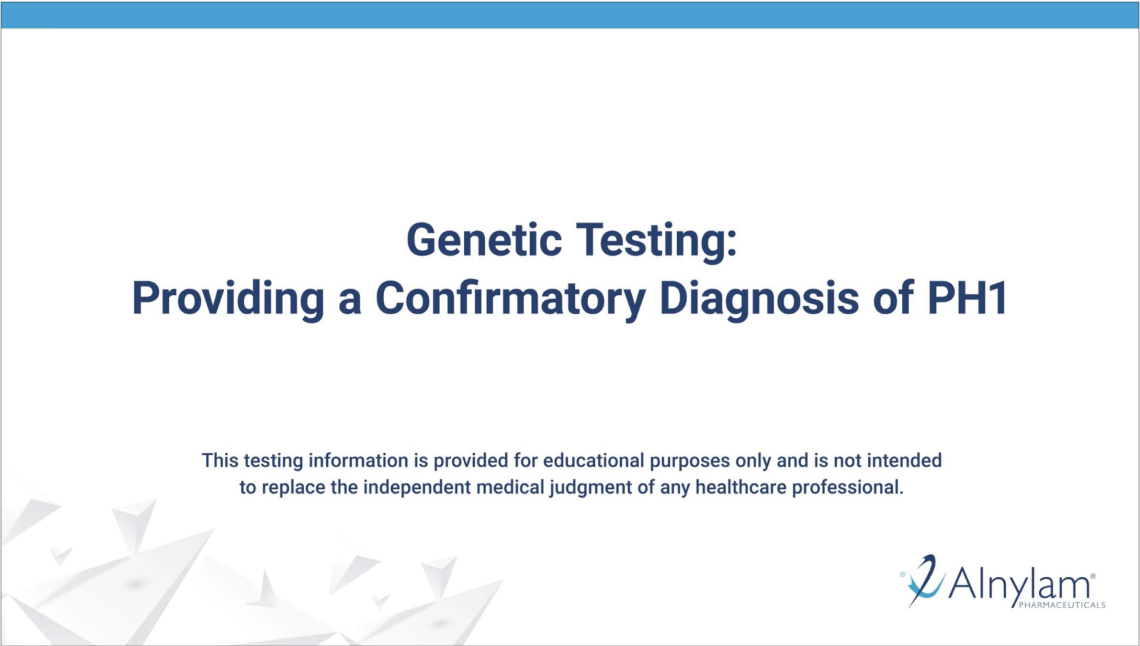
Genetic Testing: Providing a Confirmatory Diagnosis of PH1
Nephrologist Dr Matthew Breeggemann addresses when to suspect PH1 based on oxalate levels and the importance of genetic testing in confirming a PH1 diagnosis.2,7

Management of PH1: What Is the Role of Vitamin B6?
Nephrologist Dr David S. Goldfarb discusses the potential benefit vitamin B6 supplementation can have on oxalate production for patients with PH1, highlighting specific AGXT gene mutations that respond well.8,9
PH1 Stories
Patient stories and clinical patient profiles that detail examples of some signs/symptoms of PH1, as well as diagnosis and management of the disease.

Patient Perspectives: The Skinner Family Describes Life With PH1
Three children in the Skinner family were diagnosed with PH1. Watch parents Natalie and Jared discuss their PH1 journey.
